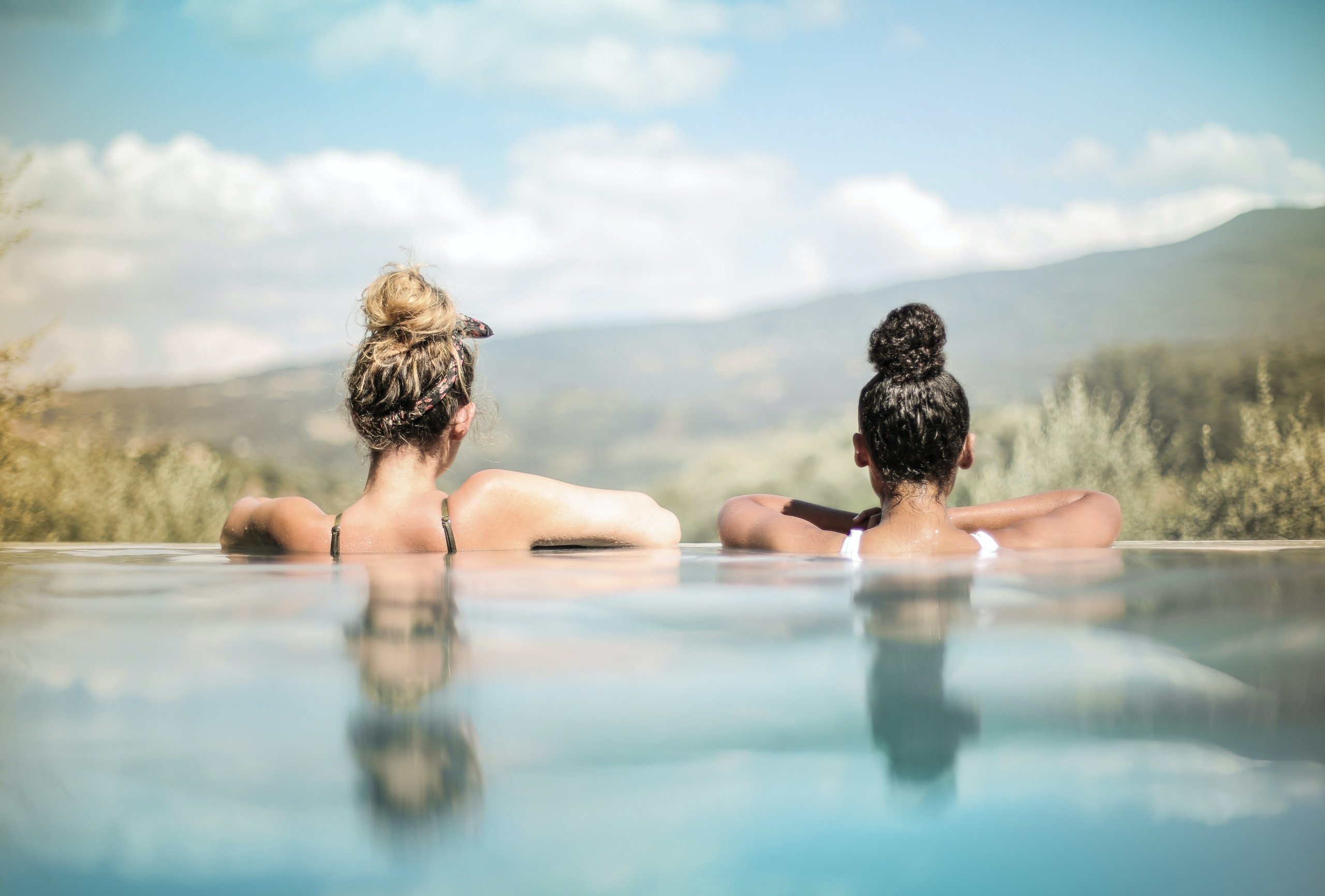
This weekend marks the summer solstice and that means that many are heading to the pool for a nice summer dip. While swimming is lovely, chlorine can be hard on our skin and hair; fortunately, there are several ways to naturally protect skin and hair from chlorine. Looking after your hair and skin this summer doesn’t require expensive products or the newest gadgets, just a bit of time and dedication! These natural tips will be especially interesting for people with sensitive skin and eczema who can really suffer from chlorine damage. Read on to discover seven ways you can protect your skin and hair from chlorine for good!
Moisturising your skin before you swim in a pool is the first step to avoiding chlorine damage. That’s because moisturiser helps create a barrier on the skin that will prevent chlorine from penetrating the epidermis. Although that doesn’t mean that it can keep chlorine out completely, so you should also moisturise after your swim. Once you’ve showered and patted yourself dry, moisturise again to nourish, hydrate, and calm your skin.
Think of your hair as a sponge—the more liquid it has inside of it, the less liquid it can absorb. Because of this, rinsing your hair thoroughly with fresh water reduces the amount of chlorine it can absorb in a pool. It’s best to allow your hair time to soak up the water, so give your hair a few moments to absorb the moisture before jumping in. You can also further lock in moisture by using hair oils to keep chlorine out.
The same way that moisturiser protects your skin from chlorine is similar to the way a mask protects your hair. Of course, before using a mask, you should find out if the pool you’ll be visiting prohibits the use of products such as these. You can make a natural hair mask by using natural oils or an oil-based product. Oils are occlusive and create a film on the hair shaft that won’t wash away like hair conditioner, but still lock in moisture. Some oils you can try are:
While you don’t have to have a full-on shower after swimming, if you can your hair and skin will thank you. By rinsing off, you can help protect your skin and hair from chlorine damage. For extra help, use a gentle cleanser on your skin and hair to remove any chemicals they may have absorbed and apply conditioner for added moisture. A quick wash can still leave some chlorine behind, so be sure to run your hair under the water for a few minutes to be sure it’s gone.
Drying your hair with a hairdryer after swimming can do more harm than good. Since hair will be more sensitive after exposure to chemicals in a pool, it’s best to reduce the amount of damage it suffers. Protect your hair from further chlorine damage and skip the hairdryer altogether. Instead, simply comb your hair with a wide-tooth comb and pat or gently towel dry.
Vitamin C is wonderful for our hair, skin, and bodies. It also amazingly neutralises chlorine in a completely natural way! You can take Vitamin C tablets, consume fruits and veggies, or use natural skincare products to get your dose of this healing vitamin. However, a product with Vitamin C that goes directly on skin and hair would be ideal for neutralising chlorine.
Whether it’s in a lake, river, or the sea, there are plenty of options for swimming outdoors. Not only do you get to enjoy the beauty of nature, but you also avoid chlorine. Even swimming in an outdoor pool is a better choice as the ventilation gives gases somewhere to go and minimizes the effect of chemicals. More ventilation will also mean a more enjoyable swim for your eyes, sinuses, and lungs!
Don’t let chlorine ruin your summer by allowing it to dry out your skin and hair. Use the power of these natural ingredients and tips to protect your skin and hair from chlorine. If you’re hoping to use more natural skincare in your daily life, be sure to check out WapoBeauty’s Soapmaking eBook. Anyone looking for guided learning should visit WapoBeauty’s Complete Facial Skincare Online Course for Beginners. Discover how to make professional, safe, and stable natural beauty products from the comfort of your home. Join the ranks of students who found this class valuable and rewarding!
Ashuni Pérez is an American writer based in Valencia, Spain. She has a passion for natural beauty and the environment. Ashuni loves to cycle and drink smoothies in the sun. Follow her on Instagram at @ashuuuuni
© 2025 Wapo.ie